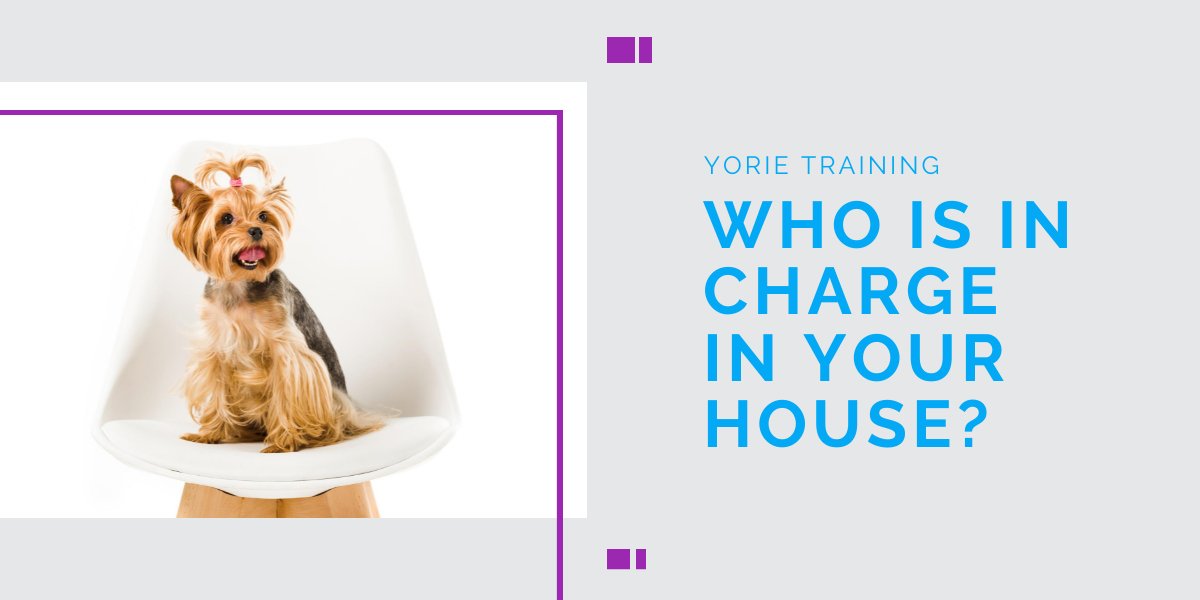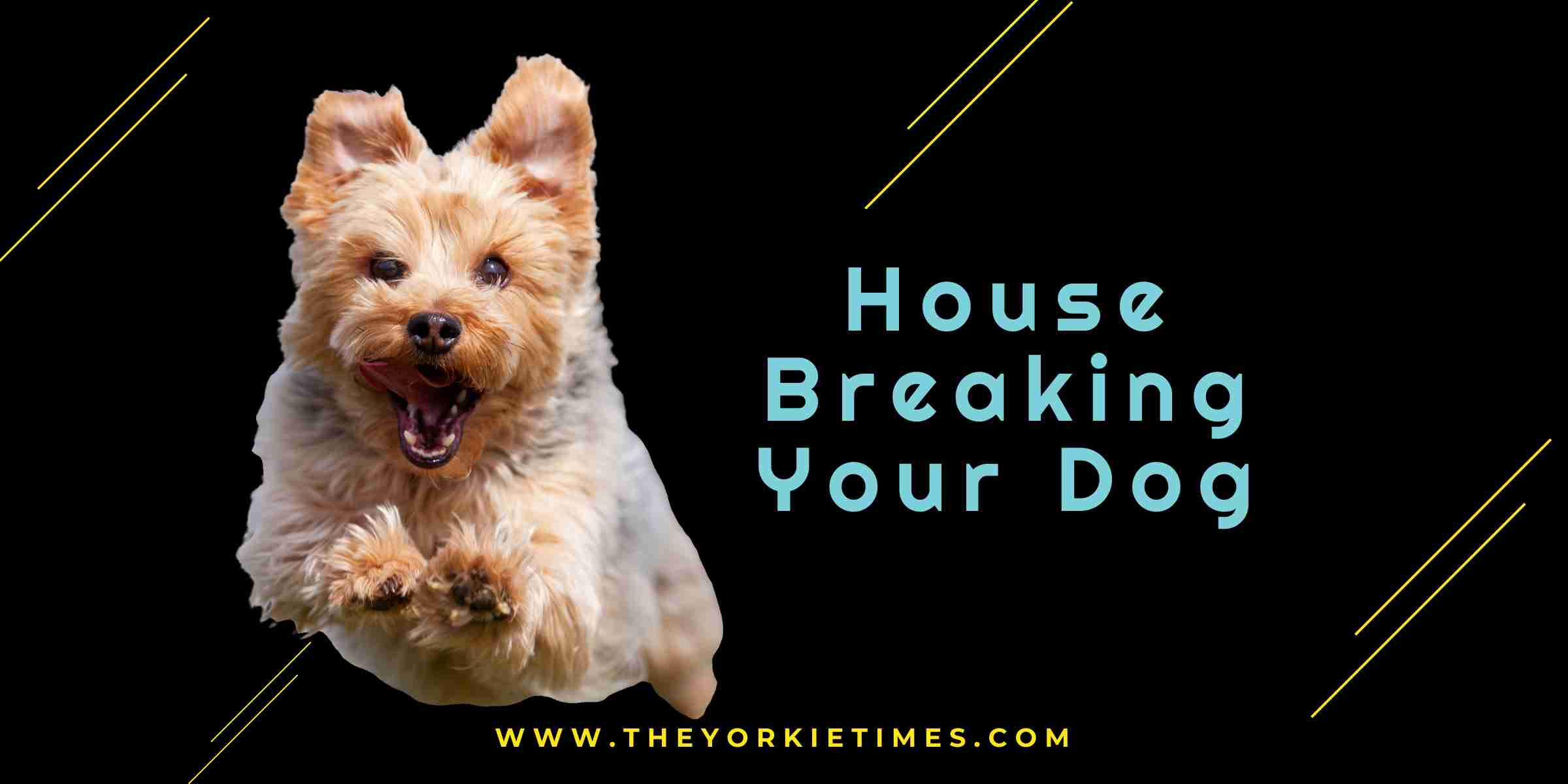Owning a cute, faithful, and furry companion can bring immense delight and contentment. However, accompanying these qualities are peculiar and amusing actions that may appear strange. Yorkshire Terriers are tiny yet feisty dogs that have captured the hearts of many dog lovers around the world. Despite their small size, they are known for their big personalities, making them one of the most popular toy breeds. However, understanding Yorkie behaviors can be quite a complex task for new owners.
The Yorkie Times will delve deeper into the various behaviors exhibited by Yorkies, their causes, and how to effectively address and manage them. Understanding their behaviors will allow us to better meet their needs and ensure a happy and harmonious relationship with our furry friends.
8 Yorkie Behaviors Explained
Why do Yorkies Get Jealous?
You may have observed that your furry friend doesn’t like it when you show affection in public, such as hugging or kissing. They might bark, jump, or even get aggressive if someone else is hugging you. While you might think they are just jealous, the reasons behind their behavior are more intricate.
Kissing and hugging are human actions that are not natural for dogs. We embrace each other tightly with our arms, and dogs perceive this close contact as a threat. They feel compelled to intervene by positioning themselves between the two individuals in an attempt to de-escalate what they perceive as a conflict.
Another reason dogs may interrupt a hug is when they seek attention. Your dog might have moved past the feeling of threat and understand that hugs and kisses are actually positive. When you engage in intimate moments with a partner, they notice something interesting is happening and want to be a part of it.
Why Does My Yorkie Show Me Their Butt?
You may have observed that on occasion, the dog walks in our direction and then turns around. At that point, they will either softly nudge us with their hindquarters or simply stand facing away from us. But why do they turn around and expose their rear instead of their face?
When a dog presents you with their buttocks, it signifies that they trust you. By facing away from you and ensuring that their teeth are the farthest from you, your dog reveals their vulnerability to you, indicating that they have no intention of causing harm and feel secure in your presence.
Another reason for your puppy turning its back towards you is a form of greeting. Dogs sniff each other’s hindquarters as a way of introducing and gathering information about one another. Since this is how dogs greet one another, your furry friend likely assumes that you, as their special human, would also appreciate this gesture and turn around to greet or exchange information with you.
Why Does My Yorkie Stare When It’s Pooping?
It is likely that you have observed how dogs maintain eye contact with you while they defecate. This behavior is due to their instinct stemming from their wild ancestors to be constantly vigilant for potential threats. Going to the bathroom puts them in a vulnerable position, and while squatting, they are unable to defend themselves against predators. They rely on you to give them a visual cue or a warning if a dangerous situation arises.
Dogs also gaze at you during this time to seek your approval. They are checking if they have chosen the correct spot for their business and they want assurance that you do not object. Keep in mind that when dogs defecate, they are marking their territory, and in the wild, dogs often attack those who defecate in their area. Hence, when your dog stares at you while pooping, they may desire reassurance that there will be no territorial dispute between you.

Why Does My Yorkie Play Bite?
If you have owned a dog for a period of time, then you likely understand that dogs frequently engage in play with their mouths open. The two canines collide their snouts and teeth together, giving the appearance that they are engaging in biting. While observing their play, you may perceive that the young dogs are on the verge of engaging in a brawl, causing you to question whether or not you should intervene. Similar to humans, dogs possess their own distinct play styles and personalities. Some display a calm and quiet demeanor, while others prefer a more rough-and-tumble approach, often engaging in vigorous wrestling. When your dog opens his mouth while playing, he is imitating a real fight, but without any actual and severe biting.
The activity known as jaw sparring in dogs is a beneficial way for them to engage in play with other dogs. Occasionally, you might observe that one of the dogs becomes too aggressive and bites too hard, causing the other dog to cry out and cease playing. The dog who did the biting is typically surprised by the cry and also stops playing briefly. However, it doesn’t take long for both dogs to resume playing.
Dogs acquire the ability to regulate the strength of their bites and demonstrate proper restraint with their mouths through this form of interaction. This is also how dogs exhibit good command over their oral actions. There are instances when the dogs may get too rough with their bites, and what was initially a playful scuffle can escalate into a genuine fight. This can be likened to situations where kids playfully wrestle at school, but it reaches a point where one of them crosses the line. You can discern whether your dog is engaged in playful behavior or attacking another dog by observing their relaxed and carefree body language, joyful bouncing, or their consistent eagerness to continue playing.
The dogs choose to make themselves vulnerable by willingly falling down and exposing their bellies. They take turns while chasing one another and allow themselves to be caught during the play. Conversely, a tense body posture, raised fur along the back, and flattened ears indicate a true fight.
Why Does My Yorkie Stretch Its Front Legs?
Many individuals assume that dogs stretch solely to warm up their muscles, but that is not always the case. Stretching is one of the most easily recognizable nonverbal cues that dogs use. It is a means for them to convey their emotions or feelings. More often than not, dogs utilize this method of communication to display their happiness and comfort in your presence or in the presence of another dog.
In fact, dogs frequently stretch when encountering another canine or person whom they do not wish to dominate or submit to. It is a friendly gesture that indicates mutual respect and a desire to engage in play. This is why your dog often stretches when you pick up the keys to go for a walk or when you return home after a long day at work. It is your dog’s way of expressing, “I missed you.” However, it is important to note that excessive stretching in dogs could potentially be a sign of an underlying medical issue.
Why Does My Yorkie Eat Its Own Vomit?
To most individuals, it may be revolting, but canines actually perceive consuming their own vomit as completely natural. Dogs lack the societal standards that humans possess, so what may seem disgusting to us is instinctual for dogs. In reality, when puppies are being weaned, mother dogs will regurgitate food for their offspring to help them adapt to eating solid meals.
It’s essential to note that there is a distinction between vomit and regurgitation. Vomiting involves expelling the contents of the stomach and is more concerning. On the other hand, regurgitation consists of undigested food that never reached the stomach. Often, dogs regurgitate when they have eaten too quickly or when the food pieces are too large for their esophagus.
Remember that just because your dog is not bothered by consuming vomit, it does not mean that frequent vomiting is not a problem. If you observe that your puppy is unable to retain their dinner, it is advisable to consult a veterinarian.
Is My Yorkie Dreaming?
You might have observed a dog’s bark, whine, or snarl during their sleep. This occurs because dogs have dreams during the REM stage of their sleep, and these vocalizations or muscle movements are reactions to whatever is occurring in their dreams. Interestingly, research indicates that most animals experience dreams regularly.
In fact, their dreaming patterns appear to be very similar to those of humans, and they can relive extended sequences of events while asleep. Therefore, although we cannot definitively determine what our dogs dream about, studies suggest that our furry companions probably dream about daily activities like chasing birds, pursuing squirrels, or engaging in play with both humans and other dogs.
Why Does My Yorkie Bite Another Dog’s Muzzle?
A muzzle grab occurs when dogs place their mouths around another dog’s snout. It is not a bite or an aggressive action, but rather a gentle hold that does not cause harm. This behavior is passed down from dogs’ wolf ancestors. Muzzle grabbing is how dogs parent their puppies or communicate when they have crossed a boundary. This is often observed during the weaning process. When a mother dog wants to stop nursing her puppies because their teeth are growing sharp, she will muzzle grab them to discourage them from suckling. Among adult dogs, gentle muzzle grabs are often part of a customary greeting.
Looking for more amazing Yorkie facts that will open your heart to these wonderful little dogs? Stay tuned with us for more informative and fun posts on all things Yorkie related. If you are looking for a journal to track your life with your Yorkie, we have you covered with The Yorkie Times Dog Journal! We also have a wonderful Facebook community that you can join as well!





Recent Comments